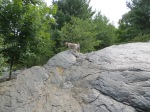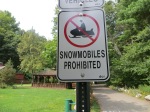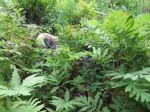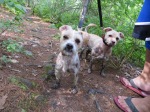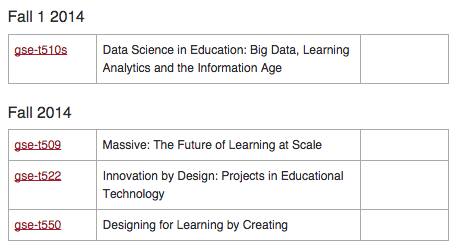--Originally published at My Life at Harvard
One thing I have heard from many alums is how fast this year will go by. I see what they mean. I can’t believe I’ve finished my first week here, and already so much work is underway.
The only class I haven’t been to is my Data Science class, since it was Labor Day that day. I’m looking forward to it!
The classes I have been to so far are amazing. I know it’s only week 1, but I’ve got a pretty good feeling about them. The course readings are very interesting, and it’s great that we’re actually discussing them in class. It’s very engaging, and I’m enjoying getting to meet so many awesome people. In my Innovation by Design course, I’m in a team and we’re already getting the foundation of our project ready.
One thing that I have found interesting about my classes here is the completely different atmosphere from those in my undergrad career. This is probably due to the difference in majors. In my journalism courses, the emphasis was on striving to get things right the first time. There was an intense pressure to be the best at everything, and to be perfect in everything. It was extremely stressful because you knew if you made a mistake somewhere, your grades would suffer.
I know it will probably get stressful at times here, but, I feel much more reassured here. There is much more of a collaborative spirit than a competitive one. I think it’s partly because as educators, we recognize we will be able to better solve problems by working together.
Additionally, every professor has emphasized how much they care about the process rather than the end product/projects. They’ve talked about how too often they see students “play it safe” and hold back from taking risks because they are worried about their grades. One of my professors said something along the lines of that she would rather see us take a huge intellectual risk and flame out rather than do something we already know how to do. Many of my professors have also remarked how they find many Harvard students are uncomfortable with the idea of failure because they’ve never failed at anything, and how it can be jarring to take these courses where failure is a part of the learning process. They’ve also made the point about how if we’re too scared to take risks, how are we going to be innovators? If we’re paying all this money just to take courses and choose projects we already know a lot about, what’s the point? Aren’t we here to learn new things?
This is very refreshing and authentic to me. I’m also thankful that I taught before coming to grad school. I had always been afraid to fail, and teaching was the first time I failed – a lot. I could spend hours trying to create the perfect lesson plan, only to have it thrown off by a fire drill or a student having a bad day. I tried new approaches, and they didn’t always work. There was a lot of struggle before I saw any signs of achievement or growth in my students. I feel this experience was the perfect preparation for what I’m about to do this year – try new things that may not turn out exactly as planned, but in the end, I will be a better person from the experience
In other news, I’ve had two internship interviews, and I think they went fairly well. I heard back from the first and was offered the internship, but I am waiting to hear back from the other as that one is more aligned to my interests.
I also bought a membership at the gym, and have actually been going. In the past, I’ve made up excuses about not having time and being really busy – but now I’m actually scheduling it in, and am falling into a routine. I’m also walking to and from school everyday, which adds up to about to a little over 2 miles.
One thing that I’ve found to help keep track of all these things is my planner. I also make sure to start on assignments right away, rather than waiting until the last minute. I set realistic goals about how many tasks I can complete per day, so I don’t get overwhelmed. I will set aside specific time on the weekends to get work done, but try to spend most of that time relaxing and rejuvenating. I wonder how/if this will change as my work load changes, but overall I’m feeling positive about managing it all.

